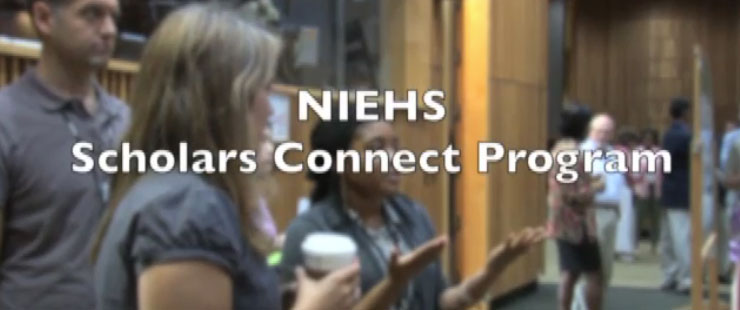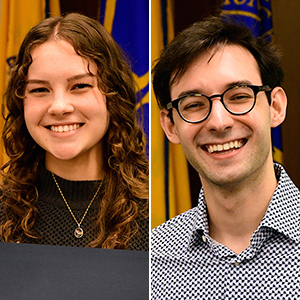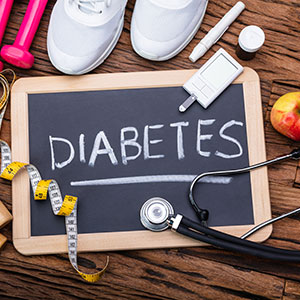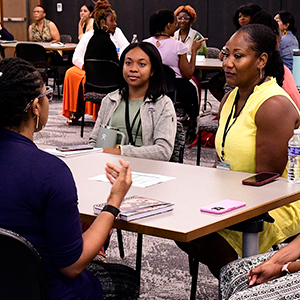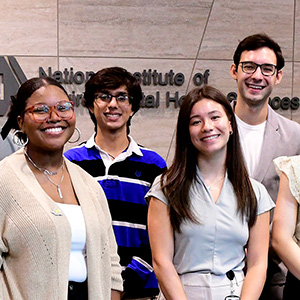On June 3-5, eleven undergraduate students from local universities completed basic training in biomedical research to kick off the 2019-2020 NIEHS Scholars Connect Program (NSCP). The boot camp gives students the analytical and hands-on skills they need to succeed as they undertake their year-long research projects in labs at the institute. NSCP is sponsored by the NIEHS Office of Science Education and Diversity (OSED).
“We are so excited to welcome the scholars who represent the next generation of environmental health scientists,” said NSCP Coordinator Suchandra Bhattacharjee, Ph.D. “It is important to get them off to a good start and we eagerly look forward to a great year for them.”
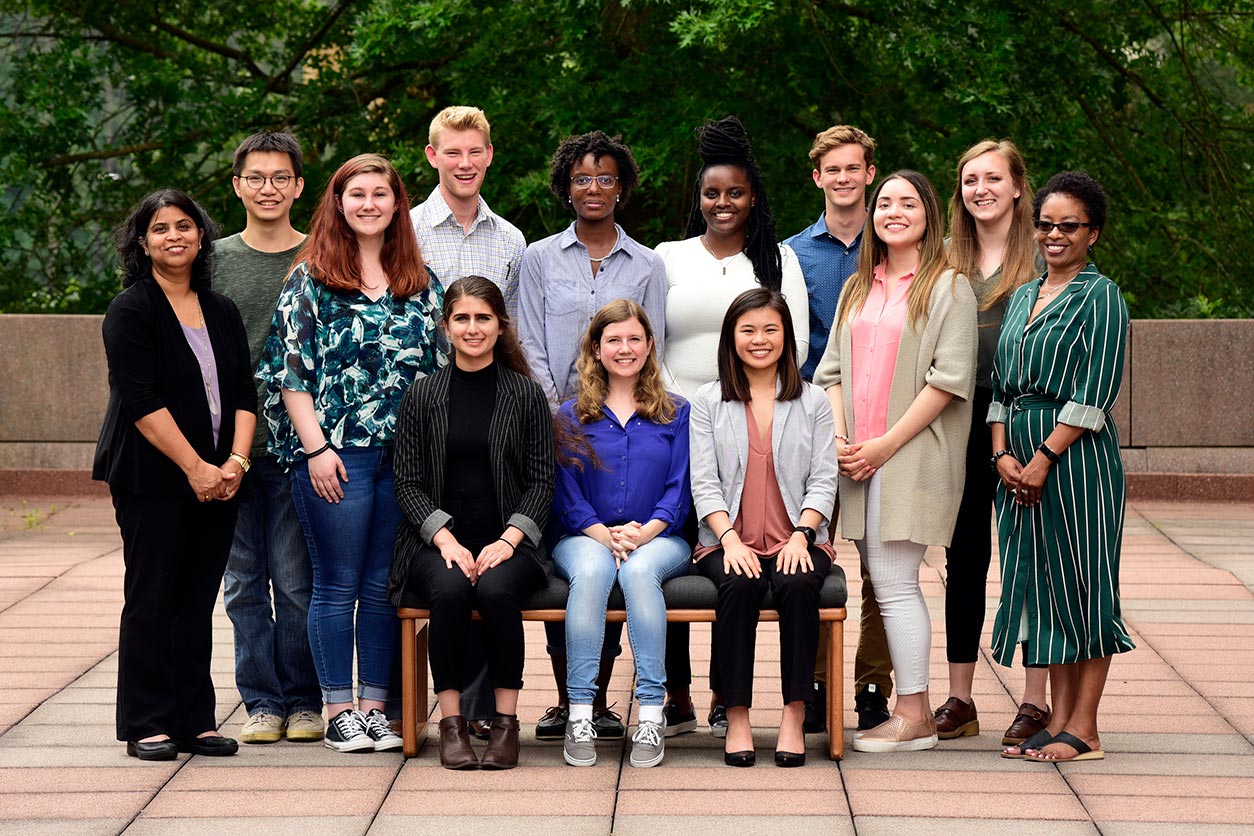 Bhattacharjee, far left, and Reid, far right, joined the new scholars for a photo during a break. From left, standing, Horng, Bouthillier, Lauten, Gay, Taylor, Goldstein, Cadena, Chapman, and seated, Haque, Van-Gorder, and Phan. (Photo courtesy of Steve McCaw)
Bhattacharjee, far left, and Reid, far right, joined the new scholars for a photo during a break. From left, standing, Horng, Bouthillier, Lauten, Gay, Taylor, Goldstein, Cadena, Chapman, and seated, Haque, Van-Gorder, and Phan. (Photo courtesy of Steve McCaw)A strong start
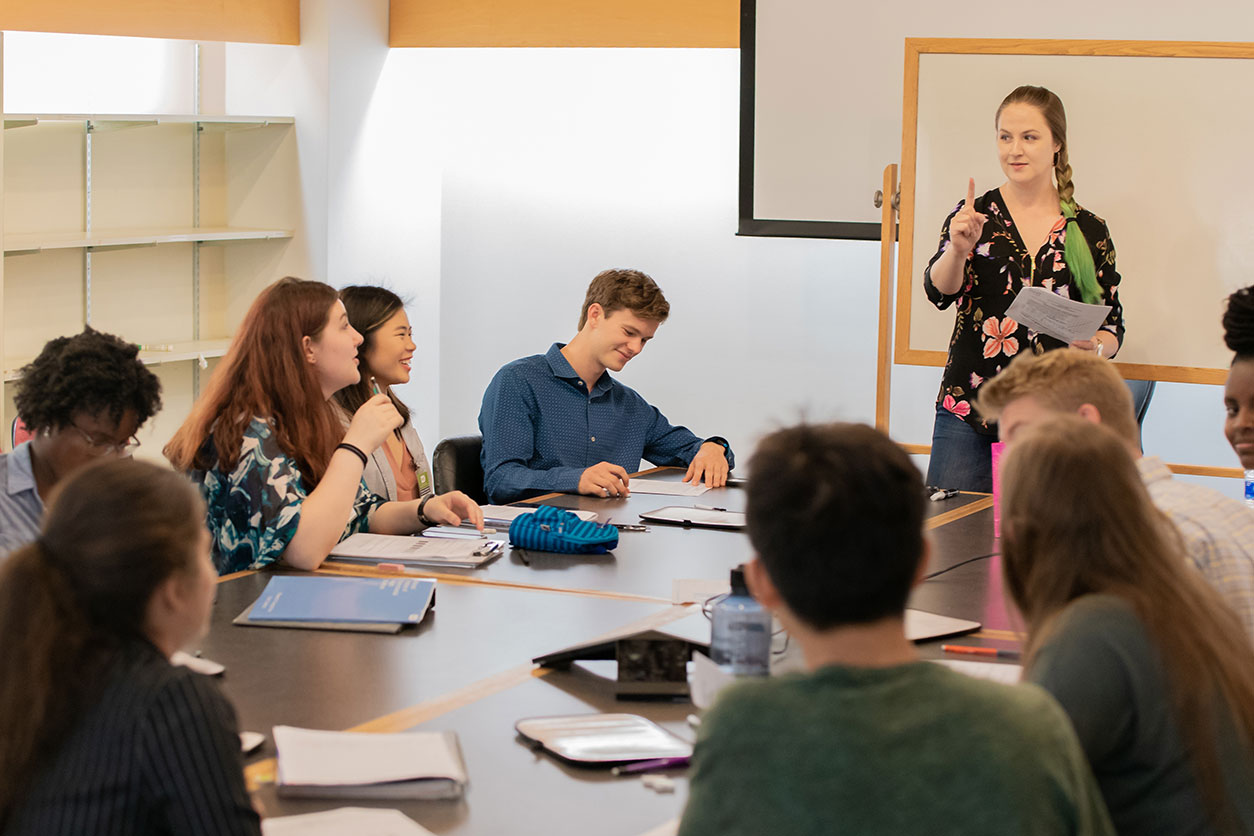 Margaret Gustafson, Ph.D., a postdoctoral fellow in the NIEHS Mitochondrial DNA Replication Group, taught the scholars how to make the chemical solutions they would need. (Photo courtesy of Michael Garske)
Margaret Gustafson, Ph.D., a postdoctoral fellow in the NIEHS Mitochondrial DNA Replication Group, taught the scholars how to make the chemical solutions they would need. (Photo courtesy of Michael Garske)Before starting the boot camp, OSED Director Ericka Reid, Ph.D., and Bhattacharjee oriented the scholars to the coming months, giving an overview, describing expectations, and sharing timelines for the scholars’ research projects, trainings, seminars, and deadlines for reflection papers and presentations.
“Scheduling is an important part of success in the program,” said Samuel Goldstein, an undergrad at the University of North Carolina at Chapel Hill (UNC) who is researching mental health and sleep. “That is especially relevant for people like me who have never worked in a federal lab before, to know how to plan my time and make the most of it.”
In the lab portion of the boot camp, other NIEHS staff presented briefings on good experimental design, scientific ethics, and the importance of undergraduate research, as well as demonstrations on solution preparation, sterile technique, and fluorescence microscopy.
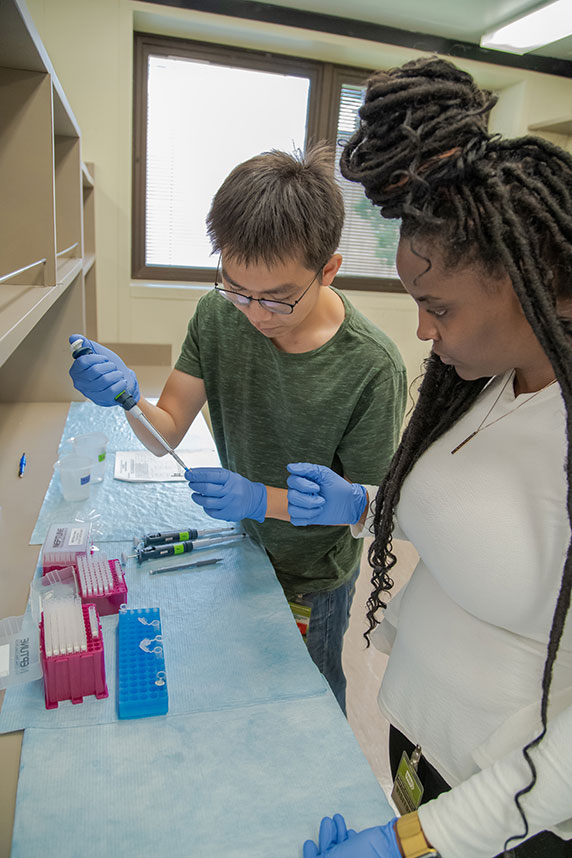 Horng and Taylor honed their pipetting skills. (Photo courtesy of Michael Garske)
Horng and Taylor honed their pipetting skills. (Photo courtesy of Michael Garske)Hitting the books
The scholars also had sessions on the fundamentals of literature searches. A handful of Ph.D. candidates joined the undergrads in front of a bay of computers in the library training room, where they learned how to use PubMed, Web of Science, and Scopus, as well as other databases.
“People often think that science only exists in a lab, but a big part of the scientific process is figuring out what has already been done,” said Library Manager Erin Knight. “We have more than 130,000 ebooks and 15,000 ejournals in our catalogue. How do scientists know they’re not missing anything? Knowing how to carefully craft a literature search can be a real time-saver for researchers at any stage in their career.”
The library staff introduced the scholars to the Journal of Visualized Experiments (JoVE), which publishes videos that teach fundamental scientific concepts and experimental techniques, including lessons created by scientists at NIEHS.
The staff also showed the scholars how to access the library’s vast catalogue and brought in a cartload of printed textbooks that the students could check out to brush up on topics like molecular biology and virology.
Networking 101
At the end of the summer, the scholars will present preliminary findings to both their peers and scientists from across the institute, as part of the NIEHS Summer Internship Program Poster Session. They will return in the fall and spring semesters, working part time at NIEHS while continuing to pursue their degrees.
“I am definitely stoked to be working here,” said Goldstein, who plans to apply to medical school in the fall. “The part of the program that I think will be most valuable to me is the opportunity to build a network. I want to meet a lot of people from different labs and learn all about their research.”
(Marla Broadfoot, Ph.D., is a contract writer for the NIEHS Office of Communications and Public Liaison.)
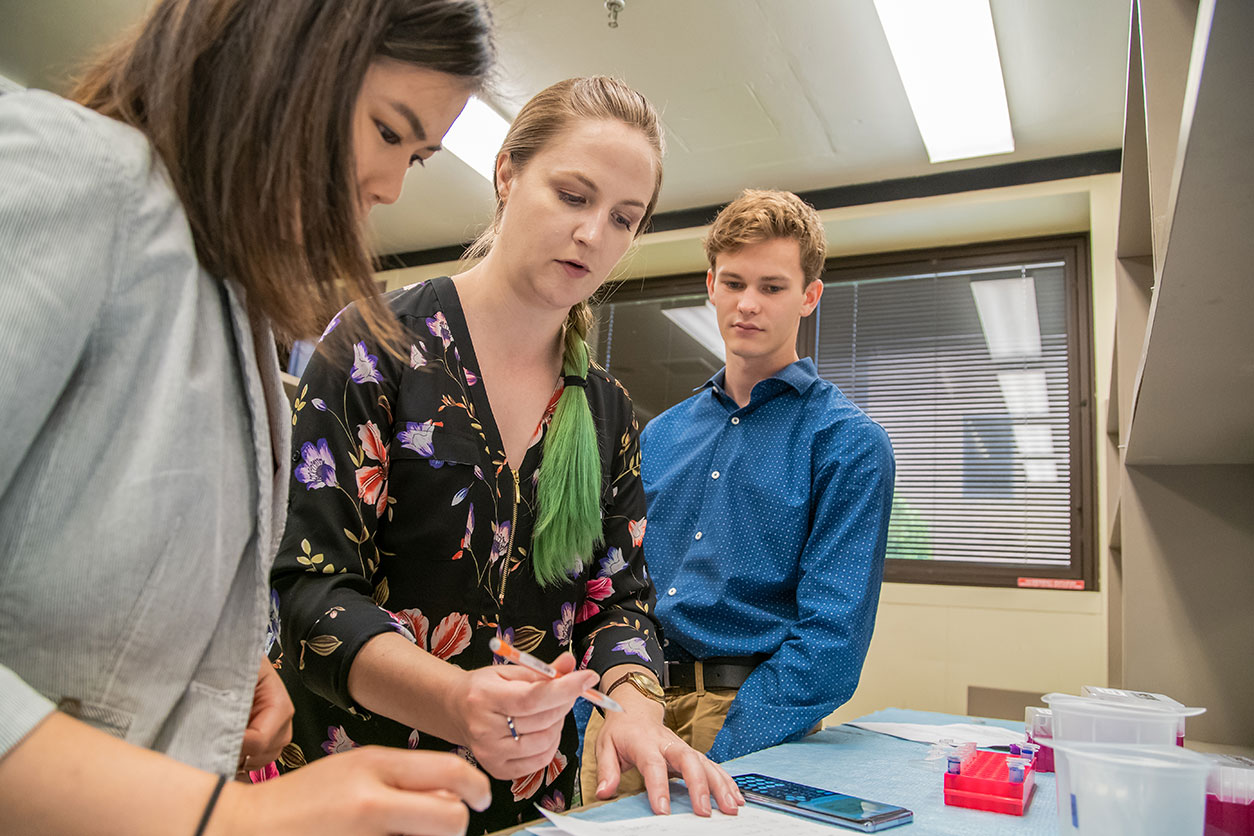
Gustafson, center, went over calculations for diluting solutions with Phan, left, and Goldstein.





